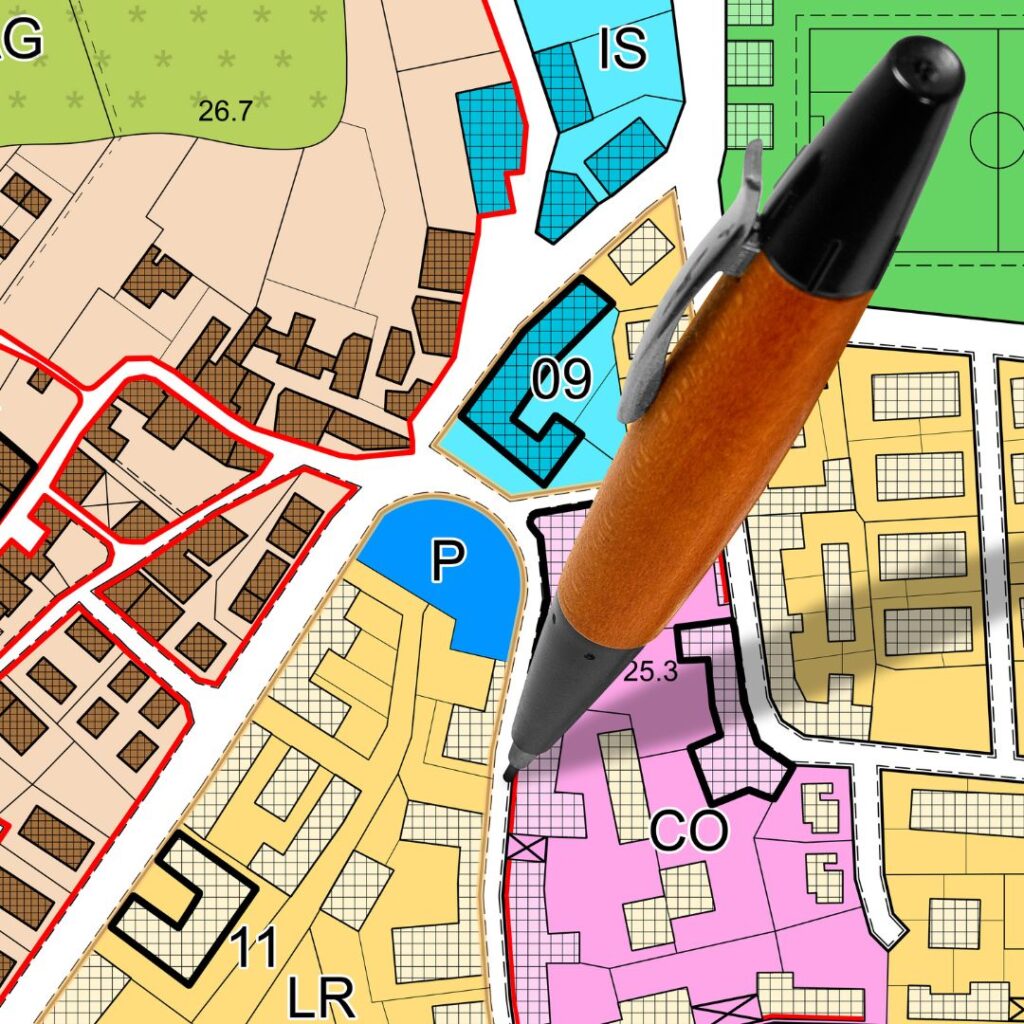Navigating Zoning Laws for Duplex and Triplex Investments in Dallas
Investing in duplexes and triplexes can be a lucrative opportunity in the Dallas real estate market. However, to maximize your investment and avoid legal issues, it’s essential to understand the zoning laws that govern these properties. Zoning laws can significantly impact your plans for development, renovation, and rental activities. This blog post aims to provide a comprehensive guide to navigating zoning laws for duplex and triplex investments in Dallas.
Understanding Zoning Laws
Zoning laws are regulations that dictate how land can be used within specific areas of a city. These laws cover various aspects, including:
- Land Use: Determines the types of buildings permitted (residential, commercial, industrial).
- Building Size and Height: Regulates the dimensions of buildings, including setbacks from property lines.
- Density: Specifies the number of units allowed on a given parcel of land.
- Parking Requirements: Outlines the number of parking spaces needed for each unit.
In Dallas, zoning laws are enforced by the City of Dallas Planning and Urban Design Department. These regulations are designed to promote orderly development, protect property values, and ensure the health and safety of residents.
Types of Zoning Districts
Dallas has several zoning districts that affect duplex and triplex investments:
Single-Family Residential (SF): Typically allows only one residential unit per lot. Duplexes and triplexes may be restricted in these areas.
Multi-Family Residential (MF): Permits multiple units on a single lot, making it a more suitable option for duplexes and triplexes. However, density limits may apply.
Mixed-Use (MU): Combines residential and commercial uses. Depending on the specific regulations, this zoning may allow for duplexes and triplexes along with commercial development.
Planned Development District (PD): These areas allow for flexibility in zoning regulations, often tailored to specific developments. Developers can propose unique plans that might include duplexes or triplexes with adjusted zoning rules.
Researching Zoning Regulations
Before investing in a duplex or triplex, conduct thorough research on zoning regulations in the desired area. Here are steps to take:
Access the City of Dallas Zoning Map: The city’s official website provides an interactive zoning map that displays zoning classifications across Dallas. This tool is invaluable for identifying the zoning district of your prospective property.
Review the Dallas Development Code: The development code contains detailed information about each zoning district, including permitted uses, density requirements, and setbacks. Familiarize yourself with the regulations relevant to duplex and triplex developments.
Consult the Comprehensive Plan: Dallas has a comprehensive plan that outlines long-term goals for development. Understanding these goals can provide insight into potential changes in zoning and future growth areas.
Engage with Local Zoning Officials: If you have specific questions or need clarification on regulations, contact the City of Dallas Planning and Urban Design Department. They can provide guidance on zoning regulations and any upcoming changes.
Key Considerations for Duplex and Triplex Investments
When navigating zoning laws for duplex and triplex investments, keep the following considerations in mind:
1. Zoning Variances and Exceptions
If your property is located in a zoning district that does not permit duplexes or triplexes, you may consider applying for a zoning variance. A variance is a request to deviate from the established zoning requirements. The process typically involves:
- Submitting an Application: You’ll need to provide detailed plans and justifications for your request.
- Public Hearings: Your request will be presented in front of the Zoning Board of Adjustment, where neighbors can voice their opinions.
- Approval Process: The board will assess your application based on hardship, neighborhood impact, and compliance with zoning objectives.
2. Building Codes and Permits
In addition to zoning regulations, familiarize yourself with local building codes that govern construction standards. Before beginning any renovation or development, you must obtain the necessary permits. The permits required may vary based on the scope of work, including:
- Building Permits: Required for new construction or significant renovations.
- Electrical and Plumbing Permits: Necessary for any electrical or plumbing work.
- Occupancy Permits: Needed to legally occupy the building after construction is complete.
3. Property Taxes and Assessments
Understanding how zoning affects property taxes is crucial for budgeting your investment. Duplexes and triplexes may be taxed differently than single-family homes, depending on their use and zoning classification. It’s advisable to consult with a tax professional to understand the financial implications of your investment.
4. Community Engagement
Community engagement is essential, especially when seeking zoning variances or alterations to existing structures. Engaging with neighbors and local community groups can foster goodwill and support for your project. Attend neighborhood meetings and share your plans, as community backing can be instrumental in gaining approvals.
The Benefits of Duplex and Triplex Investments
Despite the complexities of navigating zoning laws, investing in duplexes and triplexes in Dallas can offer numerous benefits:
Rental Income: These properties can generate multiple streams of rental income, enhancing your cash flow.
Property Appreciation: Dallas’s growing economy and population can lead to substantial property appreciation over time.
Affordable Housing Options: Duplexes and triplexes provide affordable housing options for families and individuals, making them appealing to tenants.
Tax Advantages: Property owners can take advantage of tax deductions for mortgage interest, property taxes, and depreciation.
Conclusion
Investing in duplexes and triplexes in Dallas presents a promising opportunity, but understanding zoning laws is critical to your success. By conducting thorough research, consulting local officials, and engaging with the community, you can navigate the regulatory landscape and make informed investment decisions. With the right approach, you can reap the rewards of this lucrative real estate market while contributing to the vibrant community of Dallas. Whether you’re a seasoned investor or just starting, being informed about zoning regulations will empower you to build a successful investment portfolio in the thriving Dallas area.


Joseph Gozlan
Investment Properties Advisor
Email: Joseph@Wisdom.TXcom
Direct: (469) 443.6336
Language/s: English, Hebrew
